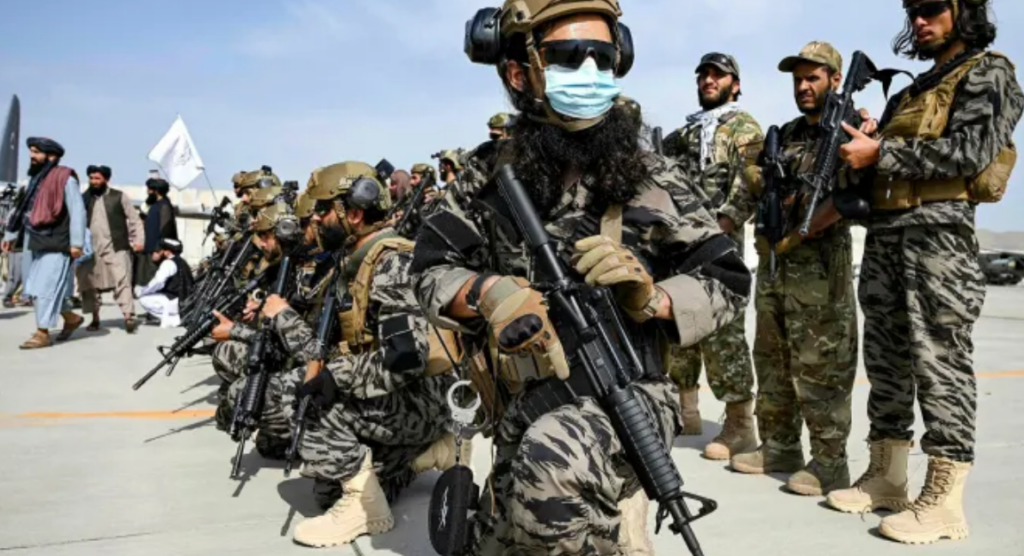Like Afghanistan, Vietnam was a bipartisan debacle.
From Kennedy to Johnson to Nixon to Ford. Wait. Ford?
Gerald – yeah. The “accidental president” was the one who, like Joe Biden, made the call to end a futile and interminable war, then presided over the chaos that followed.
As a presidential candidate, Richard Nixon illegally used back channels to subvert the Paris Peace Talks so that once elected he, not Lyndon Johnson, could claim to have delivered peace.
Instead Watergate delivered us from Richard Nixon. So the job fell to Ford.
Is Vietnam relevant as we consider where we’ve been and what sent our troops home on a one-airstrip airport in Kabul?
Absolutely. In both wars, policy makers turned the civilian business of war-making over to the war machine.
Just one more surge. One more offensive. One more infusion of troops. One more set of talks. One more hill. One more valley.
In both Vietnam and Afghanistan our troops and tax dollars propped up feckless leaders.
Mainly, however, in both we thought that we could forcibly import our essence to a social system allergic to it.
We were misled and hoodwinked by the war machine, by embedded contractors for whom war wasn’t hell but one helluva investment.
Oh, by the way, guess who wasn’t? Joe Biden.
As Barack Obama points out in his new memoir, Biden wasn’t a latecomer to the ranks of those who thought we should cut our losses in Afghanistan. He was a resolute contrarian when Obama begrudgingly let generals win debate after debate.
In the wake of what has transpired, a parade of the rock-ribbed and ribboned commanders have blasted the decision to end this war. That sounds familiar to those of us whose very lives hung in the balance as successive administrations tried to devise an honorable end to a quagmire.
Lucas Kunce, a Marine veteran of Afghanistan who is running as a Democrat for U.S. Senate in Missouri denounced “a parade of officials who basically were spending the last 20 years selling people on this idea that the 20 years, the $2 trillion and the 2,500 lives were worth it. The only so-called ‘experts’ are people who were part of that effort.”
The events of recent weeks – the Taliban’s stunning swelling to the fore – is reminiscent of the Tet Offensive of 1968.
That’s when the forces of North Vietnam demonstrated with cunning and courage that whatever force the U.S. supplied, they were going nowhere.
If one based everything on body counts, the bottom line for our generals in Vietnam, U.S. troops kicked butt in Tet.
So why a turning point in our ultimate defeat? Simple. Tet demonstrated that while our government sought to negotiate a way out and save some sons, these fighters weren’t going anywhere.
Just like the Taliban.
Fifty years ago this summer I was awaiting the fruits of the Selective Service lottery. I was spared conscription by a blessedly high draft number. Before that lucky roll of the drum, my peers and I read about the government’s policy of “Vietnamization” – trying to get the South Vietnamese to fight their own war while young American fought as their proxies.
Didn’t work. Sound familiar?
It was sobering, back in 1971, to think any of us might be sent with the expressed mission of being the last to die in that war.
The final days of the Afghan engagement were also an American-crafted disaster. The disaster is far from over.
Biden and his advisers completely underestimated the extent to which Afghan soldiers would stand up for their country. Now we know: Whenever we left, they would fold.
How about ten more years to find that out? Twenty?
If the generals and congressional hawks had their way, we’d still be there – and in Vietnam.
Fifty years on. Longtime newspaperman John Young lives in Colorado. Email: jyoungcolumn@gmail.com.

